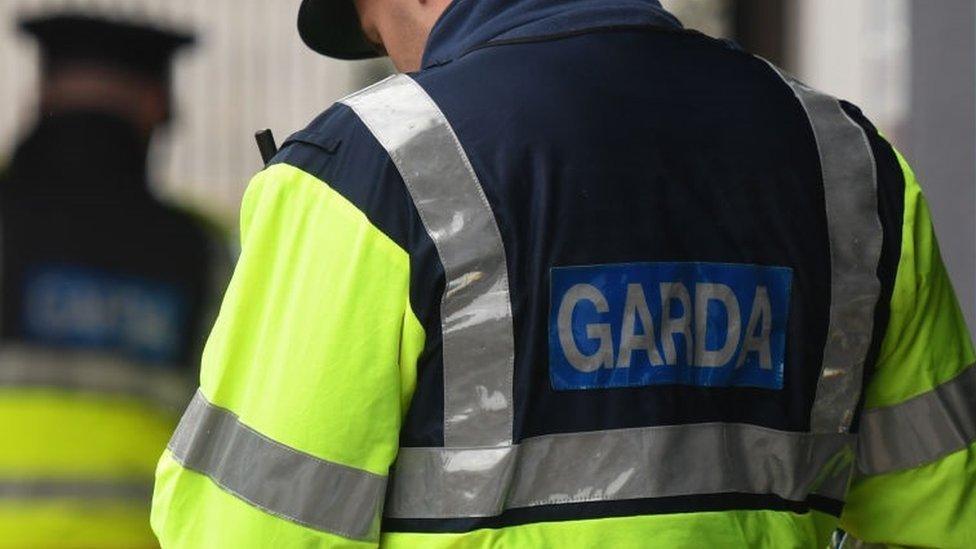Coronavirus: Police vow tougher approach over Easter
- Published
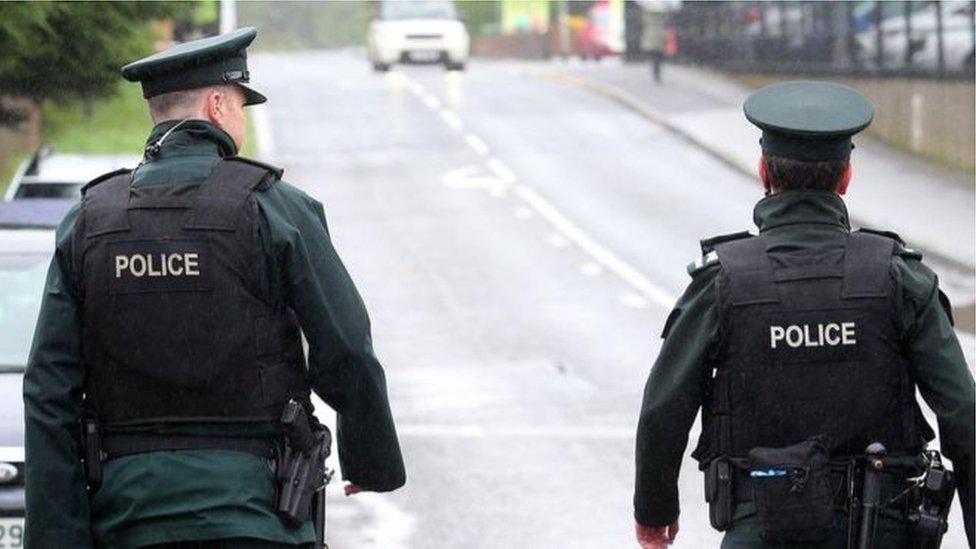
Police say they will encourage people to go home, but may issue fines if people refuse.
The PSNI has said there will be increased patrols over Easter - including cars being stopped - with spot fines for breaking lockdown rules now likely.
In the first 10 days of the regulations, 85 written warnings were issued.
A move to the next level of enforcement - £60 fines - is now on the horizon.
It also emerged on Thursday that 600-700 PSNI officers are unavailable for work due to the coronavirus emergency.
The figure, revealed to the Stormont justice committee, represents around 10% of police ranks.
To help, the department of justice has agreed to fast-track police recruit training.
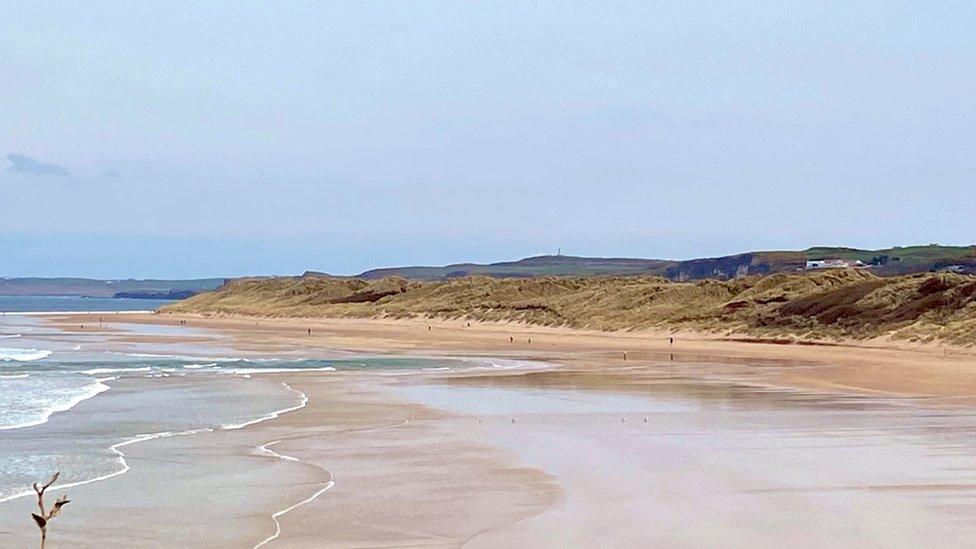
Beaches across the north coast were quiet on Thursday
PSNI Chief Constable Simon Byrne told the daily press conference at Stormont that the public would see more police patrols and "a different approach" from his officers in the coming days in order to prevent the spread of the virus.
Deputy First Minister Michelle O'Neill said it was crucial people behaved differently this Easter.
"We know that this is a special time this weekend and one where we normally get together, we congregate, we make dinner together, we sit down as a family together, we take trips, but this is not normal circumstances and if you behave as normal, more people will die," she said.
Her plea was echoed by Health Minister Robin Swann, who praised the majority of people who were abiding by social distancing rules..
But he cautioned that the measures would remain in place for some time and may need to be strengthened.
'Measured and proportionate enforcement'
Earlier, Assistant Chief Constable Alan Todd said it was considered a breach of regulations to drive to a location to exercise.
The Republic of Ireland has a 2km limit on travel from home to take exercise, but there is no distance stipulation under the Northern Ireland or UK rules.
Some 2,500 Gardaí (Irish police) are reportedly operating 1,000 checkpoints across the country over the Easter weekend. Irish state broadcaster RTÉ said 100 cars were turned back at one checkpoint in County Monaghan alone on Thursday.
The PSNI is taking a similar approach, with police patrols and makeshift checkpoints at beauty spots and roads to key resorts to ask motorists to explain their journey.
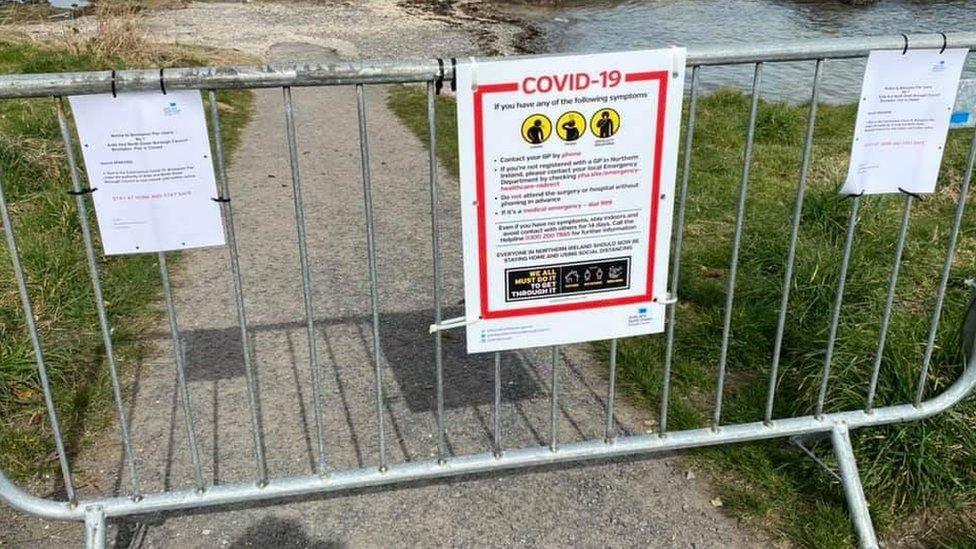
Brompton slipway in Bangor has been closed
“You have to have a reasonable excuse to have a need to leave home," said Mr Todd.
“It is not just a reason but a need and I see no need for anybody to drive to take their daily exercise so that would be a breach.
“We will encourage you to go home. If not you may face a fine.”

A SIMPLE GUIDE: How do I protect myself?
AVOIDING CONTACT: The rules on self-isolation and exercise
LOOK-UP TOOL: Check cases in your area
MAPS AND CHARTS: Visual guide to the outbreak
GETTING FOOD: Food and medicine deliveries in Northern Ireland

In other developments on Thursday:
Responding to reports of a large crowd at a Republican funeral in County Tyrone, Ms O'Neill said "no one is exempt" from social distancing guidelines
Mr Byrne said police were picking up a sense of "frustration" from people who live full-time in popular holiday resorts that they are being put "at risk" by second-home owners visiting their area
First Minster Arlene Foster and East Londonderry MP Gregory Campbell have jointly called on people to stay at home this weekend and not visit the north coast
The daughter of a woman who died with Covid-19 has appealed to people to stay at home over the Easter Holidays
Four more people died with coronavirus in Northern Ireland, bringing the total to 82
Ms O'Neill said the total was likely to be higher as official statistics only cover those who die in hospital
In the Republic of Ireland 28 more people have died, bringing the total to 263
The PSNI is in a minority of UK forces which has so far resisted issuing fines – in Scotland 144 were issued in week one.
Mr Todd said: “Any enforcement will be used in a measured and proportionate way and only where people will not take the warning.”
He believed the “vast majority” of people in Northern Ireland are complying with the regulations.
- Published8 April 2020
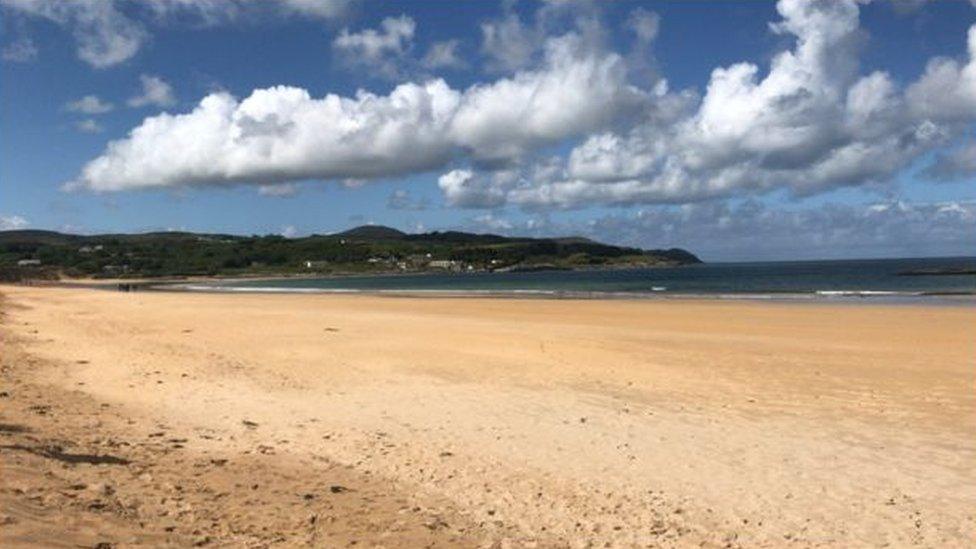
- Published8 April 2020
